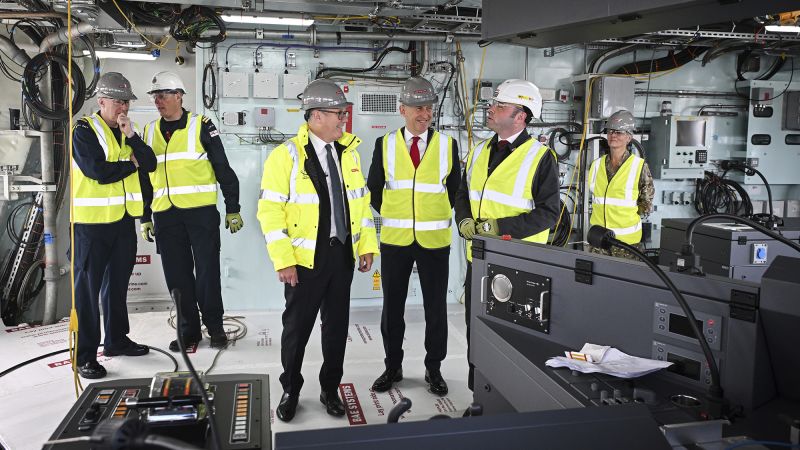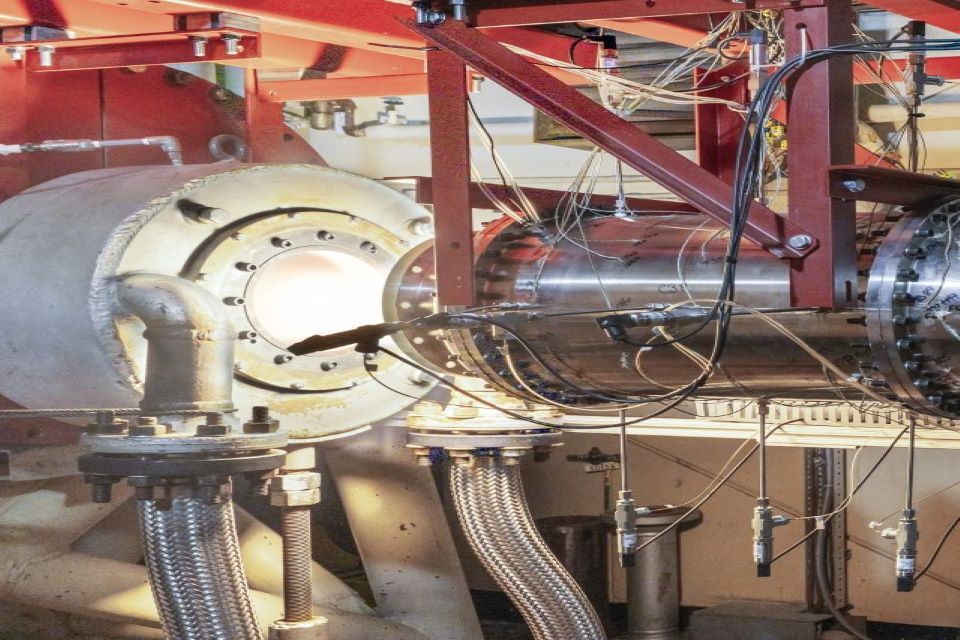UK Announces New Attack Submarines, Citing Russia Threat

Prime Minister Keir Starmer announced on Monday that Britain will undertake significant measures to bolster its military capabilities, including building new attack submarines, investing billions in nuclear warheads, and moving towards “war-fighting readiness.” This declaration comes as a landmark report on the state of the country’s military is set to be released.
Starmer's government detailed plans to construct “up to” 12 new attack submarines as part of the AUKUS partnership with the United States and Australia. These new submarines are slated to replace the UK's current fleet of seven from the late 2030s. Additionally, Starmer launched a “historic renewal” of the UK’s nuclear deterrent, supported by a £15 billion ($20.3 billion) investment, as stated in a speech in Scotland. These initiatives follow a long-awaited review of Britain’s armed services. For decades, experts have advocated for the modernization of the UK military, with calls intensifying since Russia's invasion of Ukraine three years ago. “When we are being directly threatened by states with advanced military forces, the most effective way to deter them is to be ready, and frankly, to show them that we’re ready to deliver peace through strength,” Starmer asserted.
However, the Prime Minister did not specify a timeline for achieving the pledge that Britain’s overall defense spending would reach 3% of its gross domestic product (GDP). This uplift, announced earlier this year, is anticipated by the end of the next parliament in 2034 but is contingent on economic conditions. Furthermore, Starmer did not clarify the funding sources for these new armaments. He had previously announced cuts to the UK’s aid budget to finance increased defense spending and did not rule out similar measures on Monday.
The UK's fiscal commitment to defense falls short of pledges made by some other NATO countries, whose spending has faced scrutiny from US President Donald Trump. NATO’s Secretary General Mark Rutte indicated last month that he “assumed” NATO members would agree on a defense spending target of 5% at the upcoming June NATO summit, a substantial increase from the 2% benchmark agreed upon in 2014. According to 2024 NATO data, only Poland’s defense expenditure exceeded 4% of GDP, though Latvia and Estonia have promised increases to 5%, and Italy has pledged a hike to between 3.5% and 5% of GDP. The US’s defense expenditure was 3.38% of GDP in 2024, constituting approximately 64% of total NATO expenditure.
Russia’s invasion of Ukraine, coupled with pressure from Trump’s administration for European nations to enhance their own military capabilities, has spurred a race among Europe’s major military powers to improve their readiness and counter the Russian threat, particularly if White House support for Kyiv diminishes. Starmer emphasized to the BBC on Monday, “We cannot ignore the threat that Russia poses. Russia has shown in recent weeks that it’s not serious about peace, and we have to be ready.”
Starmer outlined his intention to transform the UK into a “battle-ready, armour-clad nation with the strongest alliances, and the most advanced capabilities, equipped for the decades to come.” Beyond the promised submarines, he mentioned that a “hybrid Royal Navy” will patrol the North Atlantic—a critical transit route for Russian submarines heading towards the eastern US seaboard—signaling a shift towards more drone-based naval capabilities. The military review, commissioned by his government and led by former NATO chief George Robertson, is expected to highlight several emerging threats, such as drone warfare, where Britain is reportedly falling behind.
Decades of declining investment in the British military have raised concerns about the deterrent capabilities of Britain’s conventional and nuclear weapons, especially given its reliance on a US supply chain. Over the last eight years, the UK has publicly acknowledged two failed nuclear missile tests, one of which occurred in waters off Florida when dummy missiles failed to fire as intended.











